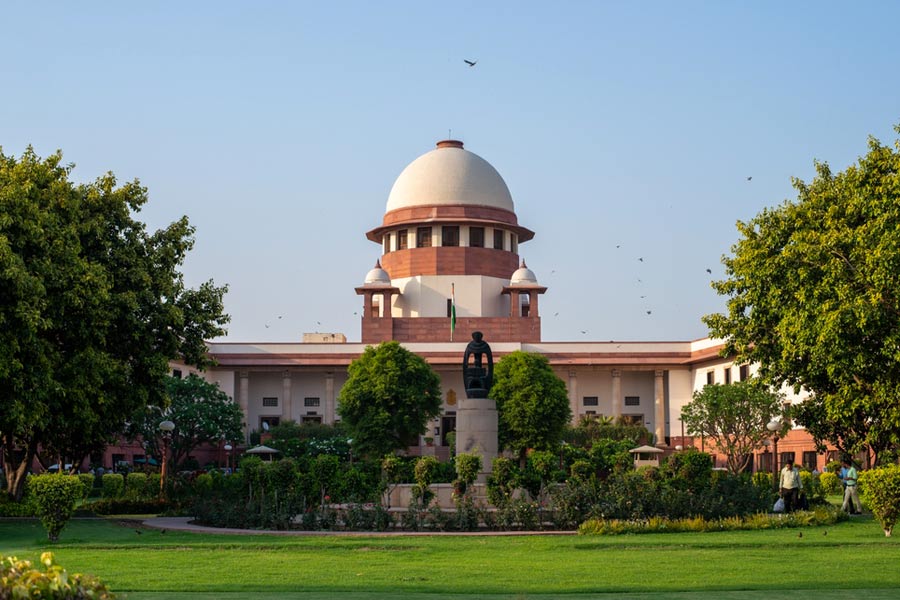The Supreme Court has said that electoral bonds far from curbing black money and money laundering had steeply increased the income of political parties from “unknown sources” to staggering Rs 11,829 crore during the years 2018-19 to 2021-22.
Justice Sanjiv Khanna who authored a separate but concurring judgment also rejected the Centre’s claim that the scheme envisaged anonymity to grant immunity to the donors.
Instead, under the impugned policy “political parties in power may have asymmetric access to information with the authorised bank,” the apex court said.
The share of income from unknown sources for national parties rose from 66 per cent during 2014-15 to 2016-17 to 72 per cent during the years 2018-19 to 2021-22.
Between 2019-20 and 2021, the bond income has been 81 per cent of the total unknown income of national parties.
The total unknown income, that is donations made under Rs 20,000, sale of coupons etc. has not shown ebbing and has substantially increased from Rs 2,550 crore during the year 2014-15 to 2016-17 to Rs 8,489 crore during the years 2018-19 to 2021-22.
“To this, we can add the total income of the national political parties without other known sources, which has increased from Rs 3,864 crore during the years 2014-15
to 2016-17 to Rs 11,829 crore during the years 2018-19 to 2021-22.
The Bonds income between the years 2018-19 to 2021-22 constitutes 58 per cent of the total income of the national political parties,” Justice Khanna said.
Justice Khanna refused to buy the argument of the Centre that disclosure of the donor’s identity would violate the fundamental right to privacy of a citizen.
“It will be rather difficult for a public (or even a private) limited company to claim a violation of privacy as its affairs have to be open to the shareholders and the public who are interacting with the body corporate/company. This principle would equally, with some deference, apply to private limited companies, partnerships and sole proprietorships.”
The apex court said “retribution, victimisation or retaliation” against any donor exercising their choice to donate to a political party is an abuse of law and power, but it has to be checked and corrected.
However, “…the change in law, by giving a cloak of secrecy, leads to severe restriction and curtailment of the collective’s right to information and the right to know, which
is a check and counters cases of retribution, victimisation and retaliation. Transparency and not secrecy is the cure and antidote,” Justice Khanna said.
“The plea of infringement of the right to privacy has no application at all if the donor makes the contribution, that too through a banking channel, to a political party. It is the transaction between the donor and the third person. The fact that donation has been made to a political party has to be specified and is not left hidden and concealed.
“What is not revealed is the quantum of the contribution and the political party to whom the contribution is made. Further, when a donor goes to purchase a Bond, he has to provide full particulars and fulfil the KYC norms of the bank. His identity is then asymmetrically known to the person and the officers of the bank from where the Bond is purchased.
“Under the Scheme, political parties in power may have asymmetric access to information with the authorised bank. They also retain the ability to use their power and authority of investigation to compel the revelation of Bond related information. Thus, the entire objective of the Scheme is contradictory and inconsistent,” Justice Khanna remarked.










